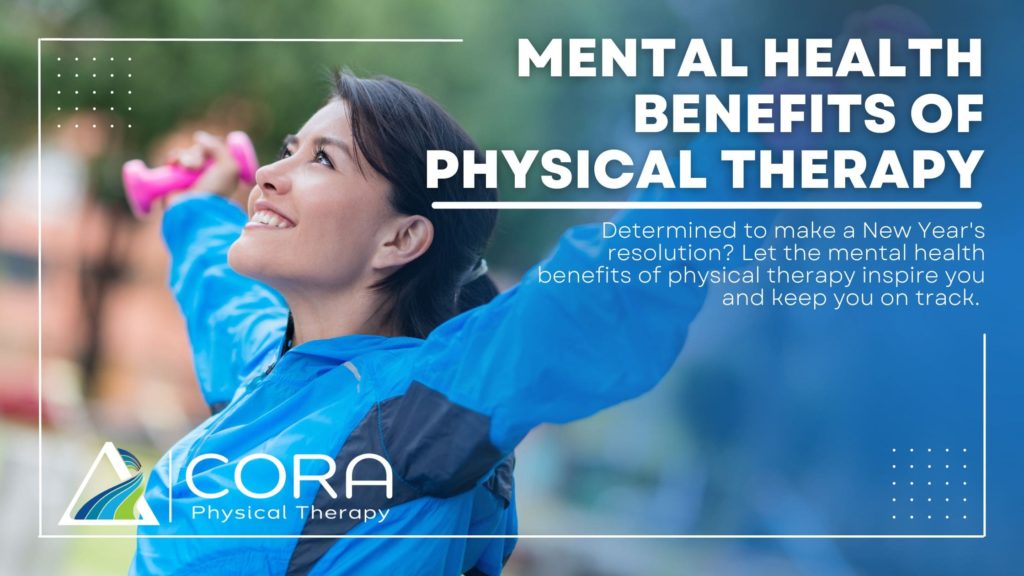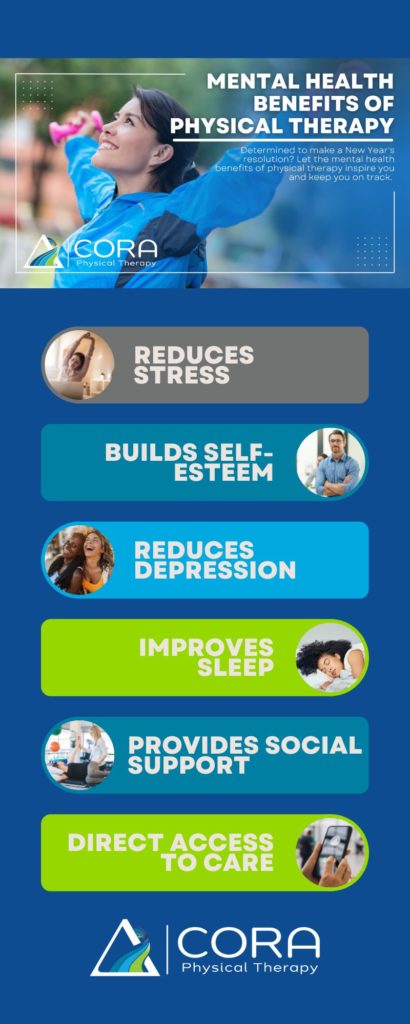
Determined to make a New Year’s resolution? Let the mental health benefits of physical therapy inspire you and keep your goals on track.
Most of us make New Year’s resolutions when the calendar turns from December to January. Resolving to make a positive change, to become a better person in the new year. Though, the challenges of daily life activities can inhibit our milestones. One way to keep on track with your resolution is with the mental health benefits of physical therapy.
Common New Year’s resolutions include:
- Eating better
- Beginning an exercise routine
- Losing weight
- Saving money
- Improved physical and mental health
The reality is that people abandon their resolutions quickly. The sports community Strava analyzed more than 800 million user-logged activities and determined most people quit their resolution by Jan. 19, “Quitters Day”.
Why is it so hard to stick to your New Year’s resolution?
Examples of why it is hard to stick to a New Year’s resolution include:
- Not truly ready to commit to a lifestyle change
- Behavioral and mental change can be overwhelming
- Physical pain from an injury or surgery can inhibit progress
While physical therapy (PT) can’t help with all these challenges, it can help your overall health.
Physical therapy addresses many of the body’s mechanical needs during recovery from an injury, surgery or other condition that makes movement difficult. PT can also improve your mental health, helping you feel better prepared to tackle your goals.

Mental health and physical therapy
Here are five mental health benefits of physical therapy:
- Reduces Stress
- Builds Self-esteem
- Reduces Depression
- Improves Sleep
- Provides Social Support
Reduces Stress
Pain causes stress, which negatively affects your state of mind. When your body feels pain, it releases anxiety and stress hormones.
These hormones are useful when an acute injury is sustained. They are a signal alerting you to get treatment. But when pain is constant, those hormones always circulate through your body.
There are a variety of options to manage this. A good way to begin is by alleviating the pain.
Physical therapy helps acute pain from a traumatic injury or invasive surgery. PT can also reduce chronic pain and improve range of motion.
Builds Self-esteem
Participating in an exercise program designed by your PT can provide a feeling of accomplishment. Each accomplishment can safely push you to new limits and adaptability.
Achieving short-term goals builds self-esteem and boosts confidence. Confidence breaks down barriers and builds endurance for sustaining life’s challenges.
“Exercise increases levels of a chemical involved in brain cell growth, which bolsters the release of the “feel good” hormone dopamine… Dopamine is known to play a key role in movement, motivation, and learning.”
NYU Langone Health, Boost in Nerve Growth Protein Helps Explain Why Running Supports Brain Health, May 2022
Reduces Depression
A “runner’s high”, for example, is a feeling of euphoria that occurs during a long run. The body releases certain chemicals, and the result is reduced anxiety and a feeling of joy.
The good news is that these feel-good chemicals are produced during other types of physical activity, too.
During exercise, your brain produces endorphins. Endorphins trigger the release of dopamine. Researchers believe that these factors provide a natural way to reduce mental disorders like depression.
By participating in physical therapy, you’re simultaneously improving your physical and mental health. Promoting health of mind and body will strengthen the likelihood of maintaining your resolution and achieving your goals.
Improves Sleep
Getting quality sleep is key to a positive outlook on life. Getting a good night’s rest can be a challenge that exercise can help with.
Research shows that moderate aerobic exercise increases the amount of deep sleep you get. That’s when your body makes repairs, and your brain processes your emotions.
Many people sleep better when they’ve had 30 minutes of exercise during the day. PT sessions are typically 30-60 minutes long, and often include therapeutic exercise.
By that logic, you’ll sleep better after each physical therapy session!
“Regular exercise can have a profoundly positive impact on depression, anxiety, and ADHD. It also relieves stress, improves memory, helps you sleep better, and boosts your overall mood. And you don’t have to be a fitness fanatic to reap the benefits.
Help Guide, The Mental Health Benefits of Exercise, May 2022
Provides Social Support
Medical issues may cause you to feel isolated from society. Working with a physical therapist makes you feel more connected.
A physical therapist is invested in your health, just as you are. PTs provide encouragement and education to progress recovery and overall health.
Physical therapists help you set and achieve goals. You’ll regain a sense of control, which reduces anxiety.
You may work with your therapist to improve your balance and strength. Together, these benefits will enhance your confidence, stamina and outlook.
Mind-body Connection
Working with a physical therapist promotes mind-body healing and sets you on the path to improved emotional and physical health. A PT will improve the way your move and feel, and help you succeed with your goals.
New Year’s Resolutions and Exercise Pain
Physical therapy is a great addition to your health and wellbeing program. With 250+ locations, success is nearby. Direct access to care means you do not need a referral or prescription. If you are experiencing pain with exercise, find a CORA Physical Therapy clinic in your area and succeed in your New Year’s resolution!
Experience Pain Free Movement
Schedule a Free Physical Therapy Screen Today
